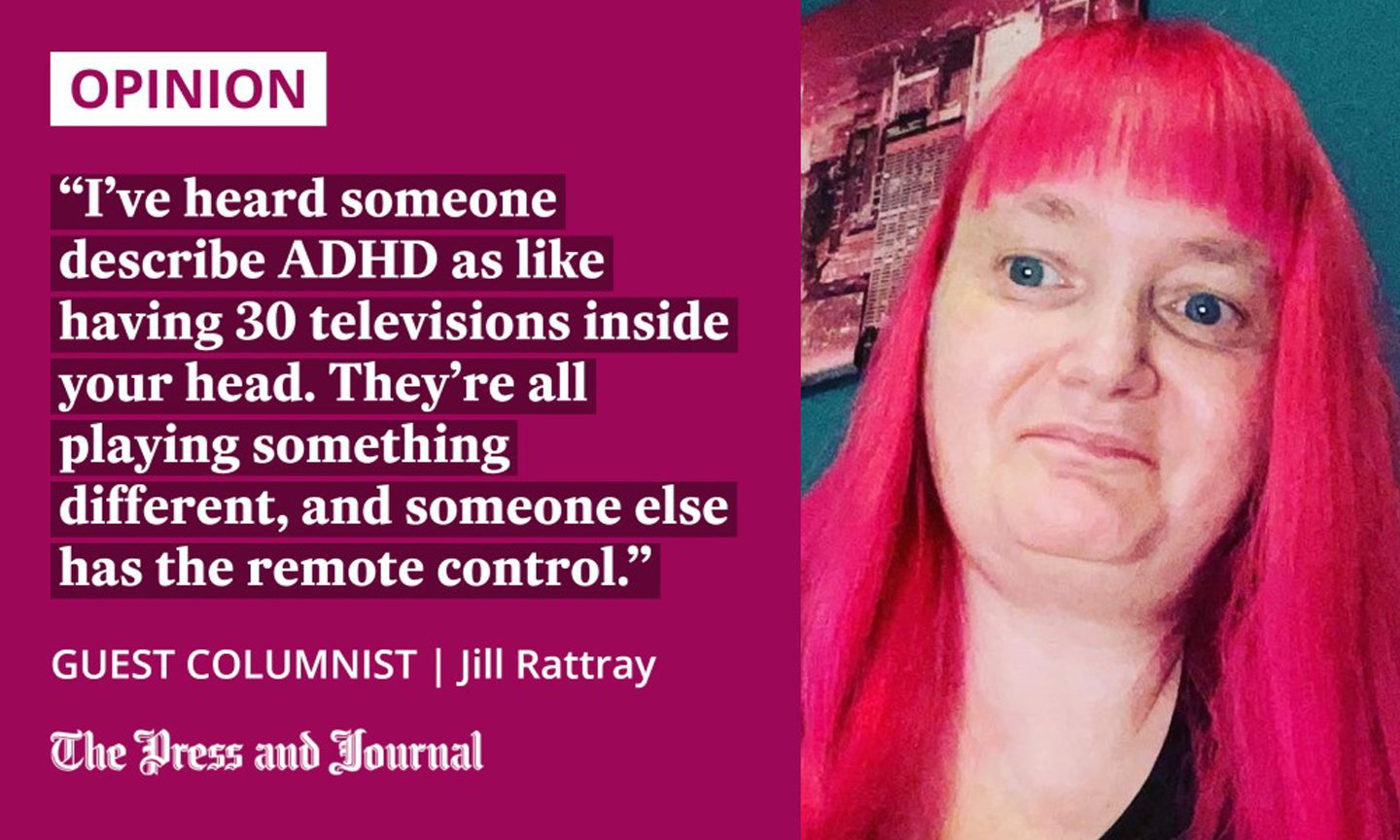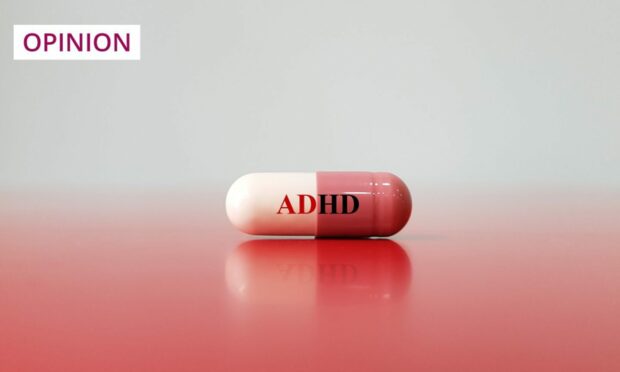This week, the BBC’s Panorama broadcast an episode claiming that private ADHD clinics are handing out diagnoses to almost anyone who makes an appointment, and that they are receiving prescriptions for medication without the necessary checks or follow-up appointments.
Maybe that’s what Panorama wanted to show, but what they actually did is increase stigma and scaremongering regarding ADHD and the medication used to treat it.
Journalist Rory Carson had assessments with five separate clinics. All five told him he has ADHD.
Carson then met with Mike Smith, an NHS consultant psychiatrist, who has been diagnosing ADHD since November 2022. He was aware Carson was a journalist and that they were filming for a documentary.
Smith took him through what was described as a standard assessment, which took three and a half hours, and agreed with Carson’s own conclusion he doesn’t have ADHD.

As The Press and Journal is a family newspaper, I won’t share my first response to the believability of someone getting three and a half hours with an NHS consultant.
I was diagnosed through the NHS in 2017, and my only criticism would be the waiting times, although the year I waited pales in comparison with the three to five years many people are now waiting.
The consultant I saw was excellent, but my appointment did not last three and a hours – and I wouldn’t want it to. My first appointment was an hour long, and I was exhausted by the end of it.
The questions asked by any assessor can be gruelling. You are going back through years, decades in my case, and are also explaining the way your brain works. Plus, many people may be discussing and reliving some traumatic experiences.
I haven’t yet watched #Panorama – ADHD Clinics Exposed, so will make a more informed comment when I have done so.
I am, however, initially very concerned about the impact this is already having on the #ADHD community in the UK.
If we are fortunate enough to be able to find the… pic.twitter.com/sng92fJ1vJ
— Michelle Beckett (@MichelleBeckett) May 15, 2023
I was officially diagnosed three months later, after a second appointment that my parents attended. Psychiatrists like to do this because they can add a relevant perspective, especially to childhood years that we may not remember in the same way.
To give me a wider perspective, I asked people in a Facebook group I’m part of for their experiences of both NHS and private diagnoses. There were horror stories, but I have to say that most of those came from the NHS. While many people like me found their GP supportive and received excellent care from their consultant, others found themselves dismissed, misdiagnosed or stuck on lengthy waiting lists.
The experience with private clinics was overwhelmingly positive, especially regarding how thorough they were before giving a diagnosis. For many, this happened after years of being misdiagnosed with anxiety, depression or bipolar disorder through the NHS. This type of misdiagnosis is especially common for women.
Stimulants work differently for people with ADHD
As soon as I was diagnosed with ADHD, I was offered medication and, although it took several months to get the dosage correct, it has absolutely been one of the best decisions I’ve made regarding my disabilities. It lets me focus more in every part of my life – although, the way Dundee United are playing lately, that focus has its drawbacks.
In the Panorama episode, Carson’s other main complaint is that every private provider offered him a prescription. I’m assuming it was for ADHD medication, because the journalist never actually says that; he only ever uses the phrase “powerful drugs”, like he’s the baddie in a kid’s TV show, attempting to lure innocents into trying illicit substances.
ADHD medication is possibly more misunderstood than ADHD itself. Stimulants are the most common type of ADHD medication, and usually what people are referring to when they’re scaremongering about powerful drugs being prescribed too easily.
Medication lets those with ADHD turn the volume down, makes controlling your attention easier, and allows you to focus. For some people, it allows them to sleep
I think it’s because many have a vague understanding of what stimulants do to neurotypical brains, and the idea of that in an everyday situation is quite alarming. But that’s simply not how they work for people with ADHD.
I’ve heard someone describe ADHD as like having 30 televisions inside your head. They’re all playing something different, and someone else has the remote control.
Medication lets you turn the volume down, makes controlling your attention easier, and allows you to focus. For some people, it allows them to sleep.
Meds don’t work alone, and are best used alongside coping strategies. However, currently, the NHS offers no tools except medication. Anything else, we have to figure out for ourselves, or look to the ADHD community for help.
If anyone is reading this and thinks they might have ADHD, please don’t let Panorama put you off seeking a diagnosis – it could change your life.
Jill Rattray writes about issues that affect neurodivergent and disabled people in the UK, particularly Scotland

Conversation